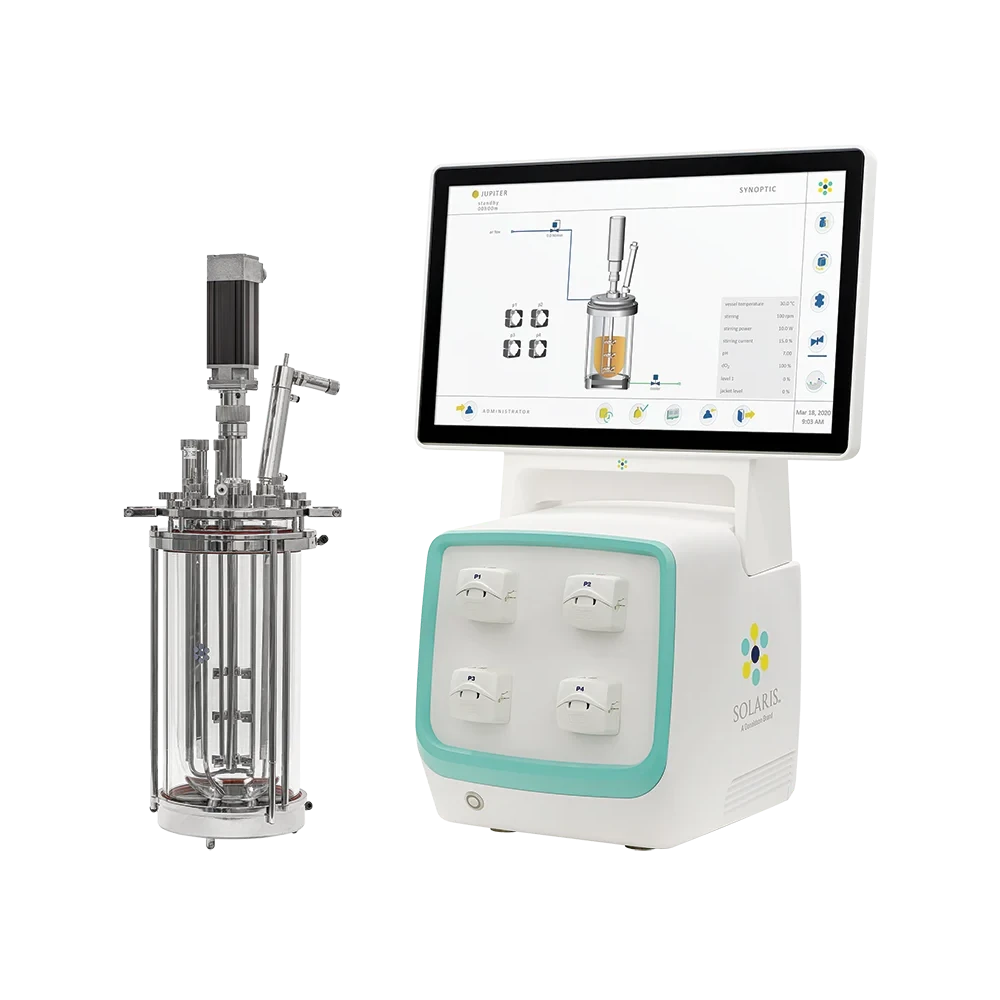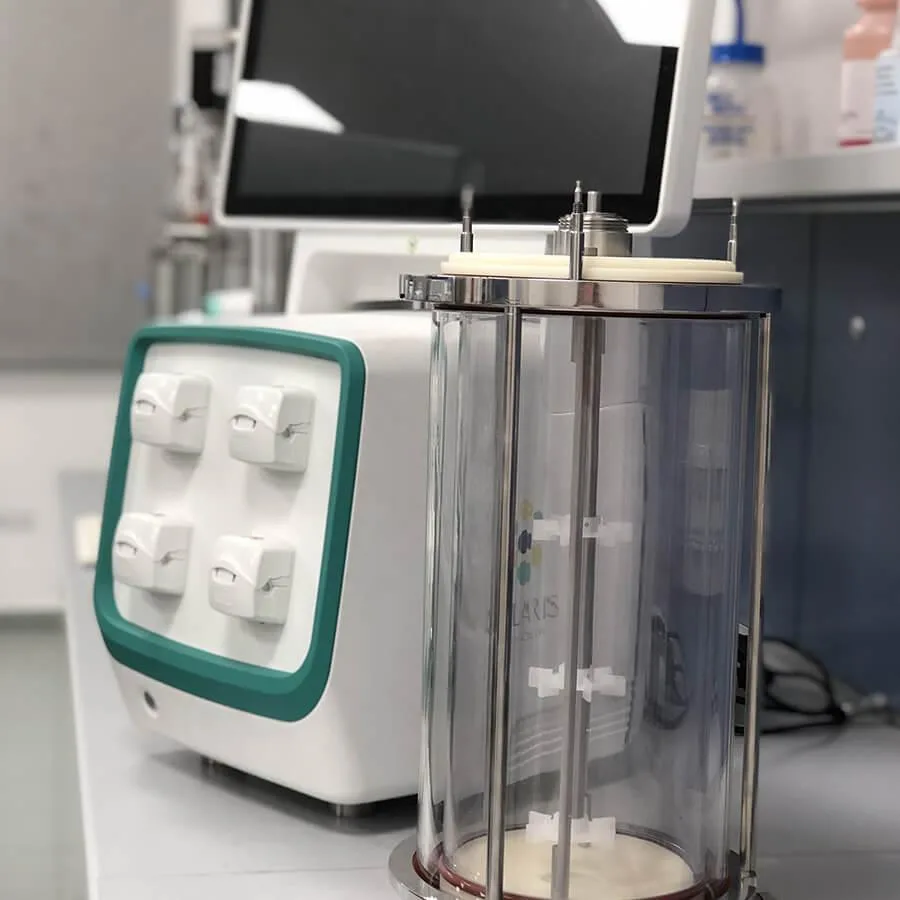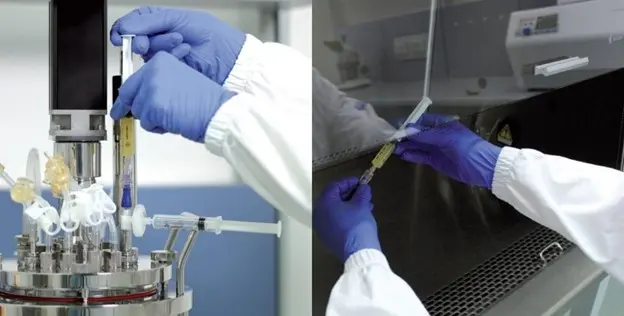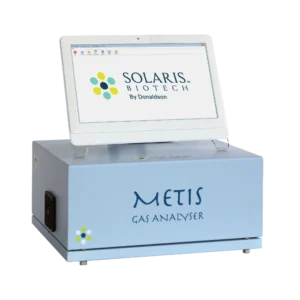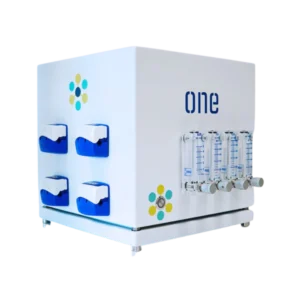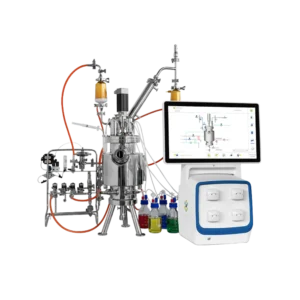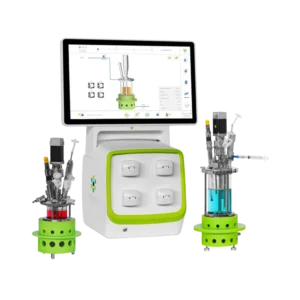The laboratory benchtop bioreactor or Fermenter from Solaris Biotech provides a versatile platform for research, education, and industrial development. Supported by Apex Scientific in South Africa, it delivers precise control for reliable fermentation. Designed for single or parallel processes, it integrates smoothly with other laboratory equipment while ensuring reproducible results.
Flexible Vessel Options
The Solaris Jupiter series offers five autoclavable vessel sizes—2 L, 4 L, 6.5 L, and 10 L. Each comes in single or double-wall borosilicate glass. Users can select the height-to-diameter ratio to match specific experiments. Thermoregulation works via a heating blanket with cooling finger or a removable double-wall jacket, which improves heat transfer during autoclaving. Furthermore, pressure control up to 1.6 bar is available in 2 L and 4 L double-wall designs, supporting effective scale-up studies.
Advanced Measurement and Control
This system monitors temperature, pH, dissolved oxygen, dissolved carbon dioxide, redox potential, antifoam, level, conductivity, weight, and cell density. In addition, Modbus digital sensors reduce background noise and provide fast response times. A 1 RPM brushless motor ensures precise agitation, while the LEM01 PLC-based control system integrates four variable-speed peristaltic pumps. Users can also add up to four analog input/output connections for greater process flexibility.
Optimized Operation
The Jupiter platform supports batch, fed-batch, and continuous fermentation processes. Additionally, it offers gas mixing strategies using up to five thermal mass flow controllers. Optional features, such as the LEDA sterile sampling system, allow up to 180 sterile samplings per batch, enhancing reproducibility. Despite its advanced features, the compact design saves valuable laboratory space.
Applications
This stirred, autoclavable fermenter and bioreactor is ideal for basic research, process development, education, and small-scale production. Therefore, it simplifies scaling from pilot studies to industrial applications.
Learn more about the Solaris Biotech range and access technical guidance by visiting the Apex Scientific Insights page.

